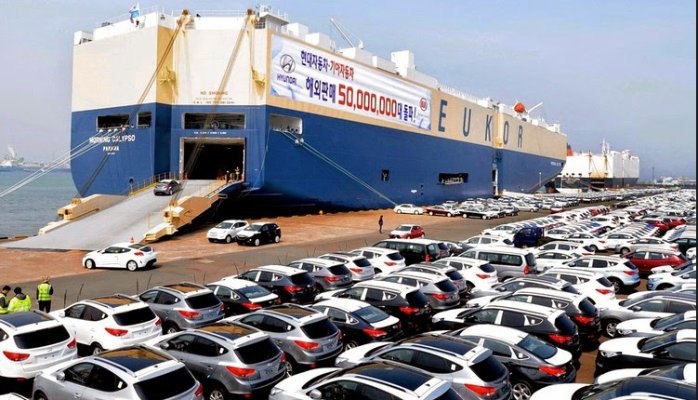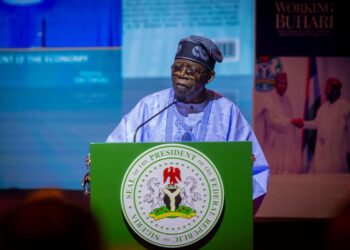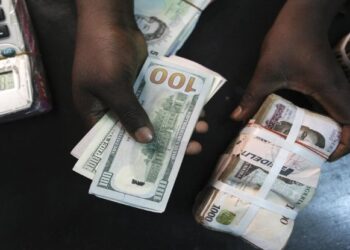Nigeria imported used vehicles (popularly known as Tokunbo) valued at $526 million (N161 billion) in 2018, as against $284 million (N87 billion) worth of vehicles in 2017.
According to the U.S Department of Commerce, Nigeria imported 82,180 units of vehicles from the U.S in 2018, as against 48,899 units in 2017.
This means that the numbers of vehicle imported into Nigeria grew by 68% year-on-year 2018.
N161 billion spent on vehicles’ importation is highest since 2015
Data further show that between 2014 and 2018, the total value of used vehicle import from the U.S amounted to $189 billion. However, in 2014, Nigeria recorded $633 million, which fell to $272.7 million in 2015.
Since 2015, the total amount of money spent on the importation of vehicles rose significantly. For instance, with $526 million (N161 billion) in 2018, it represents an all high import vale since 2015.
Also, import value ranks Nigeria 3rd highest importer
The total value spent by Nigeria on vehicles’ importation shows that the country is the third highest importer of used Vehicles from the U.S.
However, the United Arab Emirate (UAE) ranks first as the highest importer of used vehicles from the U.S with $776 million in 2018, followed by China with a total of $556 million worth of used vehicle import from the U.S.
In total, the U.S generated $13.7 billion from the export of used vehicles in 2018.
In terms of the unit of vehicles, Nigeria ranks second with 82,180
Considering the units of import, UAE still ranks first with an import of 129,495 used vehicles in 2018. In 2017, however, UAE recorded 99,674 used vehicles.
Meanwhile, Nigeria imported 82,180 used vehicle from the U.S in 2018, ranking the country 2nd after UAE. Since 2014, Nigeria recorded an all-time number in five 5years. For instance, 77,211 used vehicles were imported in 2017. The number rose in 2018.
Shipping data suggests an increase in Vehicle imported
Data from the Nigerian Ports Authority (NPA) revealed that between 2017 and 2018, no fewer than 229,690 vehicles were imported through the seaports.
It was revealed that some 180,753 vehicles were imported in 2017 alone.
The shipping statistics show that Tincan Port took delivery of 12,400 vehicles from the Mediterranean region during the period. The vehicles were transported to the country by the Italian shipping line, Grimaldi Group, to the Port and Terminal and Multi-services Limited (PTML).
How this affects the economy?
In 2018 during the 19th Abuja Motor Fair, Nigeria’s Vice President, Prof. Yemi Osinbajo stated the following:
“The Federal Government is fully committed to industrialisation and the mining sector to enable it to create direct and indirect jobs for Nigerians. About $8bn goes to overseas countries for the importation of vehicles, while Nigerians are suffering.”
The increase in import of used vehicles can have multiple effects on the economy.
First, increased importation of used cars would affect innovation and production of vehicles in the country.
Demand for foreign exchange to pay for the imported vehicles may also cause undue pressure on the exchange rate.
Lastly, an increase in import is capable of worsening the trade balance of Nigeria, which will put the current account balance in deficit.
Government effort – In a move to make Nigerians patronise locally assembled vehicles, such as the Innoson brand of automobiles, the then President Goodluck Jonathan-led Federal Government, in 2014, raised tariffs on imported cars.
The aim of the then government was to slow car importation trend in the country, strengthen and grow the local industry, and in turn expand employment opportunities for Nigerians.
The present day Government can do same. There is the need to revive the automobile industry in Nigeria to encourage local production of vehicles in Nigeria. That way, vehicle importation can be discouraged.























